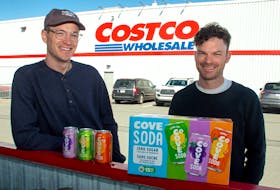The ascent is slow on the path to the peak of Kilimanjaro, as a friend of mine who recently summited may attest. The ascent business manoeuvre from a kick off the precipice of prosperity is equally daunting.
The challenges to industry continue in reverberation. Consumption is muted and accommodation of, justified, distancing restrictions are obstructive. The industriousness of entrepreneurship will prevail, but the path back to prosperity is indirect and full of peril. Any ascent cannot go in a straight line: it must wind, double-back and redirect. Business will use "belays" to minimize risks, but this too slows progress.
Commerce is continuing and operations from seasonal accommodation to year-round retail are adapting. Restaurants absorb the precautions and PPE burdens of new input costs without adapting margins. Operators are not willing to disrupt the unaccustomed customer by increasing prices.
Consumers are faced with reduced discretionary spending, uncertainty, conditioned spending constraint and a comfort to eat at home and order online. Full adaptation/ resumption will take some time.
Accompanying the many challenges of a restart, public policy seems committed to further compound problems. Maybe with good intention, but with a myopic view to the consequent impacts.
As business attempts a resumption public corridors and sidewalks remain vacant. Not for fear, but from forced absence. Our two cities are very fortunate to have federal government departments of Veteran Affairs and Revenue Canada. These are economically critical contributors of 3,580 federal employees, as of 2019 (approximately 1,000 at Veterans Affairs and 1,250 at the tax centre). Universally sought jobs of unique employment opportunities, but no longer fully based from offices. Provincial government have similar distancing flexibilities.
The contributions and multiplication impact of these employees reverberate down the alleys, shops and cash registers of our city’s economic foundation. But these contributors are now largely absent. Sent home to wait out a pandemic with no definable endpoint. Consequently, the hair salons, coffee shops, retailers and restaurants are visibly impacted. Survival for 24 months is not a feasible expectation, and the fall/ winter will not be kind.
How can government policy compound economic recovery? Profoundly.
In the legislature there is debate on moving to a four-day work week. Welcome by bureaucracy forebode by operators. I am of the mind this can be a great policy, when the labour supply outstrips the available work, or when we have space constraints or technology displacement of the workforce. None of these occurrences are structurally observable in our economy today.
The consequence, 20 per cent reduction in optimal local spending.
The concept of working from home is lauded by cabinet in a further move to compress the discretionary spend of a vibrant downtown. While the proposals do resonate with a population accustom to home-deployment; the repercussions to business, landlords and economic revitalization are an immeasurable offence.
As we teeter between attempted recovery and viral flareup, is this the time to force resumption to normalcy, or should we extend the quasi quarantine to protect collective health. It is hard to weigh health stability against economic security, but these are the decisions policy makers must make - and articulate their logic.
In the immediate term, there will be economic pain and dislocation. Adaptation is possible, as long as government values the contribution of business and provide offsetting supports.
Firms such as IBM and many others have experimented with working from home and generally these experiments are short lived. The sacrifice of hallway validation, mentorship, succession-transference and personal growth, all offload the cultural experience by working from home.
The assurance of undisrupted government employment is an economic pillar to our economy and reassurance to a fragile business community. This "anchor" should not be underestimated, and business sees this as a "carabiner bolt" on which to find security. No one can see the summit, but for those who make it, planting a marker of achievement will be validation of the COVID experience.
Blake Doyle is The Guardian's small business columnist.









